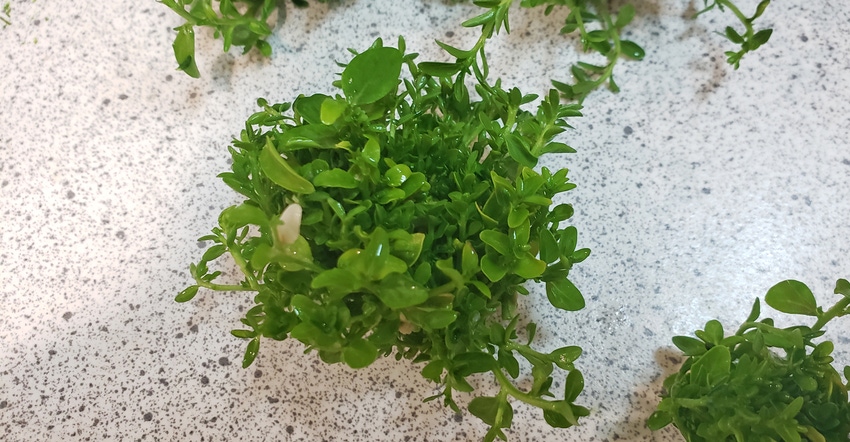October 19, 2020

There’s no doubt that the biological part of the crop protection market is exploding. Major companies have made key acquisitions in the business, and many startups are at work with a wide range of products that perform a range of functions, from fungicides to nitrogen fixation. Often the source of those biological products is fungi or bacteria, but one company has turned to plants to help plants.
Botanical Solution Inc., a Davis, Calif., based startup, is using a unique approach to find crop protection solutions in other plants, and then mass-producing them for use in agriculture. However, along the way the company also found a new adjuvant for use in vaccines.
Gaston Salinas, CEO, Botanical Solution, talked to Farm Progress about the company’s start and how it has found itself with new agriculture products, as well as opening the door to a new business in pharmaceuticals. “We intended to be in ag and ended up in pharma as well — but by accident,” he says.
Salinas explains that back in 2013, the company was founded when a novel chemistry was discovered in a plant native to Chile — Quillaja saponaria Molina. Salinas explains that “the interesting thing is that we were able to produce a key active ingredient, in a sustainable way, that had novel biological activity for prevention and control of botrytis in high-value crops.”
That’s great news for a startup, but the next step is developing the process to scale production to levels that make it commercially viable. That includes working out the details for commercially integrating the product into more conventional systems to be part of an integrated pest management strategy. Salinas says that process was helped along by an early investor that helped guide that early process.
A major find
While the botrytis solution from that unique plant offered a foothold in the market, more recently, BSI has come across a potentially even more lucrative product. “We discovered that as part of the chemical composition out of this plant extract, that we were actually producing an important gold standard adjuvant for the pharmaceutical industry,” Salinas says. "
The adjuvant, QS-21, has been found to be an active immune modulator that is now a key part of many vaccines in development — including some for COVID-19.
Salinas harkens back to the value of the ag focus before discovery of the adjuvant, noting that work at BSI on its process could only have happened first with ag as the focus. “I think that agriculture was a great school, just to look into product volumes and to look at scale,” he says. “I believe we’re way more prepared to tap into the pharmaceutical space now that we have certain capacity, certain knowledge and an understanding of how we can produce this compound.”
The process
Usually, a biological product starts with a fermentation vat for growth of the bacteria or fungus that is the active ingredient in the final product. Not so at BSI. The company is using tissue culture, essentially sprouting those Quillaja plants from cuttings to boost production. The growth chambers used are proprietary, but they’re designed to recreate growth conditions to propagate material that can be refined into the final product in sufficient quantity for use.
Essentially, employees at BSI are harvesting fresh biomass each day, and then putting it through that concentration process to end up with enough biomass to provide a reliable, consistent product — whether it’s for treatment of botrytis or creation of that new adjuvant.
Salinas says the result is a product that performs consistently and offers a new mode of action for control of the crop disease.
BSI isn’t stopping there. The company is exploring a range of unique plant species, seeking new botanical approaches for use in agriculture and pharmaceuticals. The ability to replicate local growing conditions in the production facility is key. He hints at Antarctic plants that may contain specific future products, noting that growth facilities at BSI are designed to reproduce even those harsh conditions.
The biological crop protection world is evolving, with a range of new tools coming to market. How they perform in the long term will be key not only to farmers, but also to these crop innovators. You can learn more about the company at botanical-solution.com.
About the Author(s)
You May Also Like






